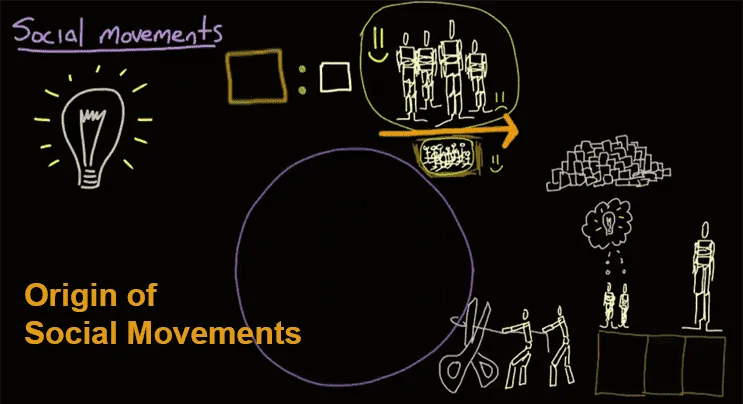Who is Founding Fathers of Sociology and their Contributions?
Sociology have founding fathers and have different social views, lets us discuss about them and their contribution:
Auguste Comte.
Auguste Comte (1798 – 1857) was a French positivist thinker and came up with the term of sociology to name the new science made by Saint Simon. One universal law that Comte saw at work in all sciences he called the law of three phases. It is by his statement of this law that he is best known in the English speaking world namely, that society has gone through three phases:
- Theological,
- Metaphysical, and
- Scientific.
He also gave the name “Positive” to the last of these because of the polysemous connotations of the word. Comte formulated the law of three stages, one of the first theories of the social evolution-ism, that human development (social progress) progresses from the theological stage, in which nature was mythic-ally conceived and man sought the explanation of natural phenomena from supernatural beings, through metaphysical stage. In which nature was conceived of as a result of obscure forces and man sought the explanation of natural phenomena from them until the final positive stage in which all abstract and obscure forces are discarded, and natural phenomena are explained by their constant relationship. This progress is forced through the development of human mind, and increasing application of thought, reasoning and logic to the understanding of world.
In using social static and social dynamics, Comte saw the former as the assessment of the general principles of actions and reaction of the diverse parts of the social system (or society), which he argued cannot be studied separately “as if they had an independent existence” but must be analyzed as a whole. With regard to social dynamics, Comte believed that the whole society must be the unit of analysis, and how it develops and how it changes with time is knowable.
Emile Durkheim.
Emile Durkheim generally regarded as one of the founders of sociology” Durkheim’s sociology is constructed on a set of assumptions of a system having interdependent parts that are held together by a large value system.
Durkheim’s works emphasized consensus and social order to the exclusion of social change and conflict to which Marx spoke extensively in his monographs. Despite the conservatism nature of Durkheim, “He advanced a discussion of the division, of labour in society in which he accounted for the increased specialization, characteristic of modern capitalist society”. In his book, Social Division of Labour he has envisaged three aspects of social life:
- Social Solidarity or Unity of society,
- Division of labour, and
- Social evolution.
According to Emile Durkheim, solidarity is of two types:
- Mechanical Solidarity, and
- Organic Solidarity.
Durkheim assumes that the society has certain functional prequisites, the most important being, social order.
Max Weber.
Max Weber conceived of sociology as a comprehensive science of social action. In his analytical focus on individual human actors he differed from many of his predecessors whose sociology was conceived in social structural terms.
Weber’s discussion of authority relations, why men claim authority, and feel they have a legitimate right to expect willing obedience to their command, illustrates his use of the ideal type as an analytical tool and his classification of types of social action.
Weber distinguished three main modes of claiming legitimacy. Authority may be based on rational grounds and anchored in impersonal rules that have been legally enacted or contractually established. This type is rational legal authority, which has increasingly come to characterize hierarchical relations in modern society.
Traditional authority, on the other hand, which predominates in pmoden societies, is based on belief in the sanctity of tradition, of “the eternal yesterday.” It is not codified in impersonal rules but inheres in particular persons who may either inherit it or be invested with it by a higher authority. Charismatic authority, finally, rests on the appeal of leaders who claim allegiance because of their extraordinary virtuosity, whether ethical, heroic, or religious.
Karl Marx.
Karl Marx was a social scientist and a philosopher. He believed that social change is what was needed for a better society, and to effect social change there must be class conflict. He wrote “All human history thus far is the history of class struggles.”
Marx maintained that the main sources of social change come primarily from economic influences. He identified the main dynamic of modern development as the expansion of capitalism. Capitalism, he argued, divided societies into conflicting classes where the ruling class exploited the working class and the working class struggled to overcome that exploitation.
Marx believed that we must study the divisions within a society that derive from the economic inequalities if we want to understand the forces shaping that society. He believed that capitalism would be replaced by an economic system in which the society would have no classes.
Herbert Spencer.
Herbert Spencer (1820-1903) is chiefly remembered as the father of Social Darwinism, a school of thought that applied the evolutionist theory of survival of the fittest to human societies, he also contributed to a wide range of subjects, including ethics, metaphysics, religion, politics, rhetoric, biology and psychology.
Although he has often been criticized as a perfect example of scientism, he was at the time considered by many to be one of the most brilliant man of his generation. Spencer was important to sociology because of his views and ideas about evolution. He emphasized the study of whole rather than the parts of society.
He said that each part of the society performs different functions and their interdependence is imperative for the total well being of the society. His idea of functional interdependence was taken by various sociologists to study the society and were called functionalists.




